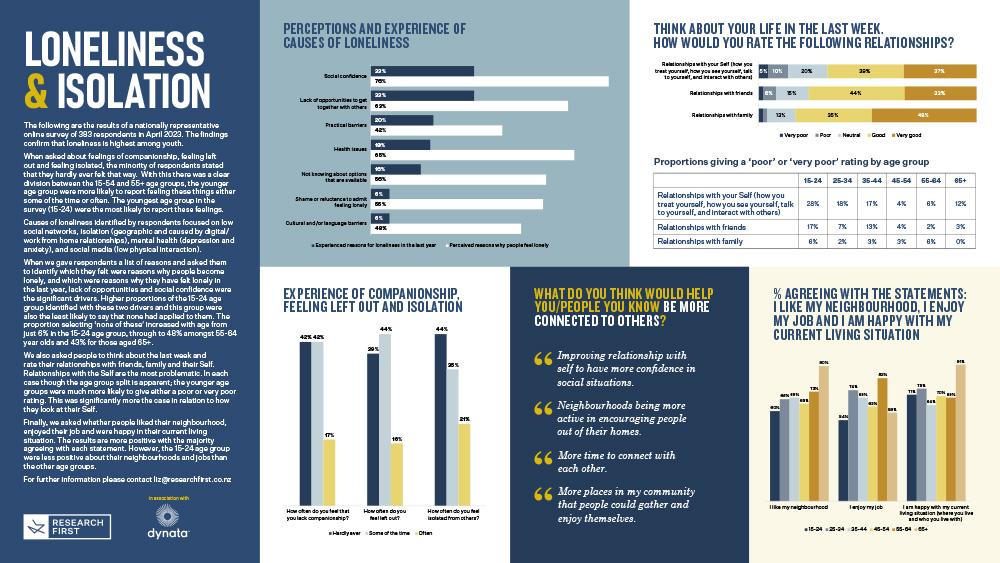Loneliness – May 2023 update
The following are the results of a nationally representative online survey of 383 respondents in April 2023. The findings confirm that loneliness is highest among youth.
When asked about feelings of companionship, feeling left out and feeling isolated, the minority of respondents stated that they hardly ever felt that way. With this there was a clear division between the 15-54 and 55+ age groups, the younger age group were more likely to report feeling these things either some of the time or often. The youngest age group in the survey (15-24) were the most likely to report these feelings.
Causes of loneliness identified by respondents focused on low social networks, isolation (geographic and caused by digital/work from home relationships), mental health (depression and anxiety), and social media (low physical interaction).
When we gave respondents a list of reasons and asked them to identify which they felt were reasons why people become lonely, and which were reasons why they have felt lonely in the last year, lack of opportunities and social confidence were the significant drivers. Higher proportions of the 15-24 age group identified with these two drivers and this group were also the least likely to say that none had applied to them. The proportion selecting ‘none of these’ increased with age from just 6% in the 15-24 age group, through to 48% amongst 55-64 year olds and 43% for those aged 65+.
We also asked people to think about the last week and rate their relationships with friends, family and their Self. Relationships with the Self are the most problematic. In each case though the age group split is apparent; the younger age groups were much more likely to give either a poor or very poor rating. This was significantly more the case in relation to how they look at their Self.
Finally, we asked whether people liked their neighbourhood, enjoyed their job and were happy in their current living situation. The results are more positive with the majority agreeing with each statement. However, the 15-24 age group were less positive about their neighbourhoods and jobs than the other age groups.



